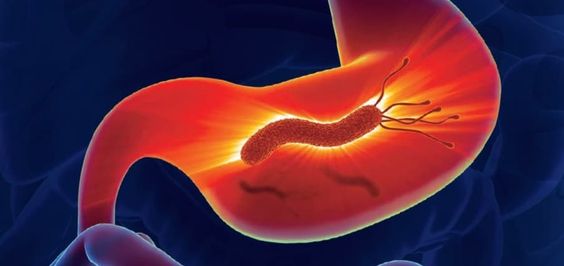Introduction:
A stomach ulcer, also known as a peptic ulcer, is a painful sore that develops on the lining of the stomach. Stomach ulcers are a relatively common condition, affecting millions of people each year. They can cause a range of symptoms, from mild indigestion to severe abdominal pain. While most stomach ulcers are not serious, they can lead to complications if left untreated.

Stomach ulcers are caused by an imbalance between the digestive fluids in the stomach and the protective mechanisms that keep the stomach lining healthy. This imbalance can be caused by a variety of factors, including infection with the bacterium Helicobacter pylori (H. pylori), the long-term use of nonsteroidal anti-inflammatory drugs (NSAIDs), such as ibuprofen and aspirin, smoking, and excessive alcohol consumption.
Signs and Symptoms of Stomach Ulcers:
Stomach ulcers often cause a burning or gnawing pain in the abdomen, which can range from mild to severe. This pain typically occurs between meals or during the night and may last for minutes to hours. Other common symptoms of stomach ulcers include:
- Indigestion
- Nausea and vomiting
- Loss of appetite
- Weight loss
- Bloating
- Feeling easily full after eating
- Heartburn
Causes of Stomach Ulcers:
As mentioned above, stomach ulcers are caused by an imbalance between digestive fluids and the stomach's protective mechanisms. The most common causes include:
- H. pylori Infection: This bacterium is the most common cause of stomach ulcers. It weakens the protective mucus layer of the stomach lining, making it susceptible to damage from stomach acid.
- NSAID Use: Long-term use of NSAIDs can irritate and erode the stomach lining.
- Smoking: Smoking weakens the stomach's defenses and increases stomach acid production.
- Alcohol Consumption: Excessive alcohol use can damage the stomach lining and worsen ulcers.
Treatment Options for Stomach Ulcers:
Treatment for stomach ulcers depends on the underlying cause. If an H. pylori infection is present, a combination of antibiotics and acid-reducing medications will be used. If NSAID use is the cause, stopping or reducing the use of these medications may be necessary.
Other treatment options include:
- Proton pump inhibitors (PPIs): These medications block acid production in the stomach.
- H2 blockers: These medications reduce the amount of acid your stomach produces.
- Antacids: These medications neutralize stomach acid, providing quick relief from heartburn.
When to See a Doctor:
If you experience any of the symptoms of stomach ulcers, it is important to see a doctor for diagnosis and treatment. Early detection and treatment can prevent complications such as bleeding, perforation, and obstruction.





